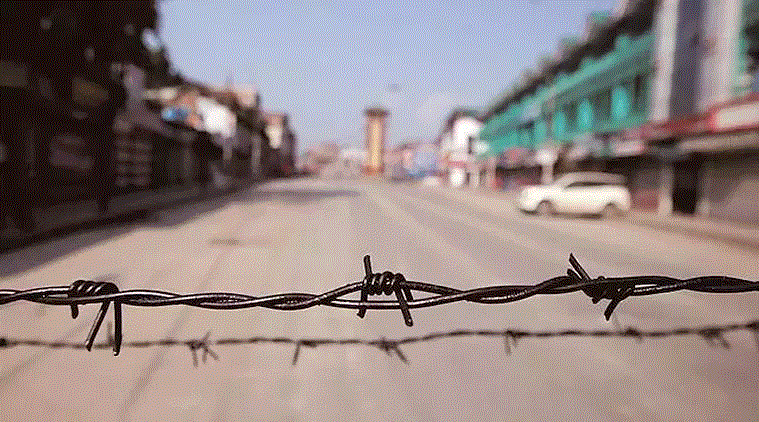 India: Government must immediately lift communication restrictions and protect human rights in Jammu and Kashmir
India: Government must immediately lift communication restrictions and protect human rights in Jammu and Kashmir
(Kathmandu/ Bangkok, 13 August 2019) – The Asian Forum for Human Rights and Development (FORUM-ASIA) is deeply concerned over the severe and prolonged communication restrictions in Indian administered Jammu and Kashmir since 5 August 2019. The blackout on the Internet and phone calls, and restriction on freedom of movement of the local residents are severe violations of fundamental human rights of the people.
It was reported that more than 500 people, including human rights defenders, politicians, and civil society and business leaders, have been detained during the past week,[1] which violates their right to participate in the decision-making process for Indian administered Jammu and Kashmir. Though FORUM-ASIA is not able to independently verify the information due to communication blockade, its members reported that human rights activist Khurram Parvez and Professor Hameeda Nsyeem are among those who are placed under house arrest. And about 20 people were shifted from Kashmir to Agra Central Jail last Thursday. Senior advocate Zafar Shah and Mubin Shah from the Kashmir Chamber of Commerce were reportedly among them.
Millions of people in the state of Jammu and Kashmir have been held incommunicado[2] since the early morning of 5 August 2019, following the Indian Government’s decision to revoke the region’s special status. All public meetings are prohibited and the movement of people is heavily restricted. These restrictions also prevent journalists and media personnel from performing their work, posing challenges on press freedom. Several Kashmir-based media organisations could not issue their publications since then. On 10 August, the Editors Guild of India in a statement has ‘urged the government to take immediate steps to restore normalcy for the media’s communication links.’ On the same day, Anuradha Bhasin, the executive editor of Kashmir Times, the largest circulated daily in Jammu and Kashmir, has filed a writ petition in the Supreme Court, seeking directions to ensure that an enabling environment is created for journalists and other media personnel in all parts of the state.[3]
According to a local civil society organisation, the Software Freedom Law Center, the authorities have ordered for shut down of mobile and internet connection in Jammu and Kashmir for 53 times so far during this year,[4]and the current restriction is described by the local population as the most severe. Families and students living outside the state are unable to contact their families and loved ones.
The UN resolution in 2016[5] declared that online freedom is a human right and one that must be protected. In 2017 when a similar blockage happened in Jammu and Kashmir, David Kaye, the UN Special Rapporteur on the promotion and protection of the right to freedom of opinion and expression, and Michel Forst, the UN Special Rapporteur on the situation of human rights defenders, condemned the restriction on the Internet and social media services, saying they had a ‘disproportionate impact on the fundamental rights of everyone in Kashmir.’[6]
FORUM-ASIA believes that restrictions on communication, arbitrary mass detention of dissidents, and the denial of freedom of expression and access to information will lead to further deterioration of human rights and basic freedoms in Jammu and Kashmir.
FORUM-ASIA urges the Government of India to immediately lift communication restrictions and stop all forms of human rights abuse in Jammu and Kashmir. We called on the Government of India to address the Kashmir issue through peaceful and democratic means and refrain from using military interventions.
***
For a PDF version of this statement, please click here
For further information, please contact:
– South Asia Programme, FORUM-ASIA, [email protected]
[1] https://www.channelnewsasia.com/news/asia/500-detained-india-kashmir-lockdown-pakistan-11792414
[2] https://www.nytimes.com/2019/08/10/world/asia/kashmir-india-pakistan.html
[3] https://thewire.in/media/editors-guild-statement-kashmir-shutdown-media-restrictions
[4] https://timesofindia.indiatimes.com/india/53-internet-shutdowns-in-jk-in-2019/articleshow/70586980.cms
[5] https://undocs.org/A/HRC/32/L.20
[6] https://www.hrw.org/news/2017/06/15/india-20-internet-shutdowns-2017


